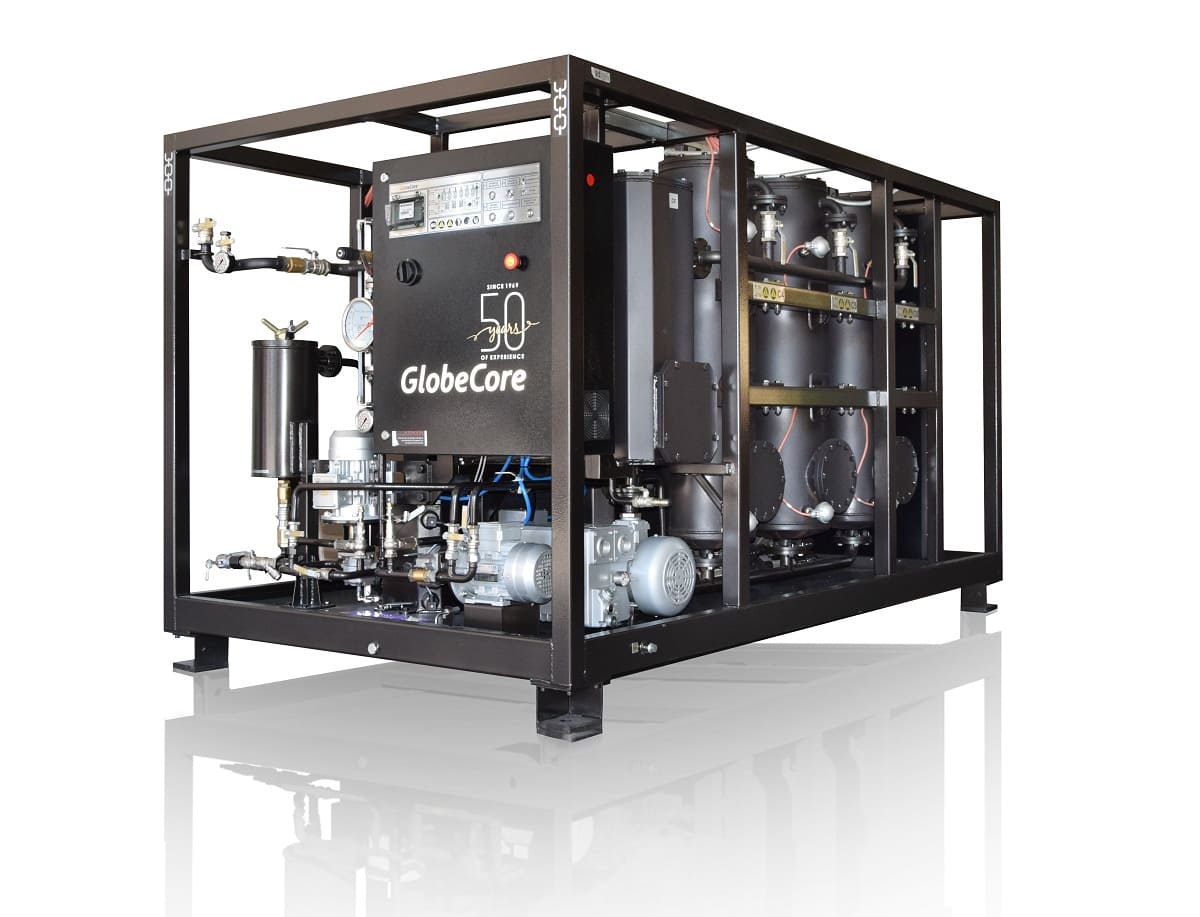Why Regenerated Transformer Oil Is Important for Reliable Power Systems
The critical function of regenerated transformer oil in guaranteeing the integrity of power systems can not be overstated. By recovering the oil's fundamental chemical and physical homes, the regeneration procedure significantly improves its dielectric toughness and thermal performance.
Relevance of Transformer Oil
Transformer oil plays a vital role in the effective operation of electrical transformers. This customized oil serves numerous features, primarily as an insulator and coolant, ensuring the trusted and safe performance of transformer systems. Its dielectric residential properties prevent electrical discharges, thus guarding the stability of transformer components. By offering thermal conductivity, transformer oil dissipates warmth generated throughout electrical procedure, which is vital for keeping ideal operating temperature levels and prolonging the life-span of the tools.
In addition, transformer oil works as a barrier against dampness and air, which can lead to oxidation and destruction of transformer products. The presence of contaminants in the oil can substantially hinder its protecting residential properties, causing operational ineffectiveness and possible devices failure. Regular surveillance and upkeep of transformer oil are consequently essential to making certain the proceeded efficiency of transformers.
The high quality and make-up of transformer oil are extremely important, as they straight affect the integrity and efficiency of the electric systems in which they operate. Understanding the relevance of transformer oil is necessary for industries and energies reliant on robust power framework, stressing the requirement for efficient management and regrowth procedures to preserve oil integrity gradually.
Benefits of Regeneration Refine

Furthermore, the regrowth procedure mitigates the deterioration of oil, which can bring about enhanced oxidation and acid formation. This not just boosts the reliability of the oil however likewise lowers the danger of transformer failings as a result of insulation failure. The boosted top quality of regenerated oil enables transformers to operate at ideal degrees, inevitably resulting in enhanced energy effectiveness and decreased functional prices.
In addition, the regrowth procedure adds to preserving the total wellness of the power system. Transformers can run much longer without the demand for oil substitute, hence minimizing downtime and upkeep initiatives. In recap, the regrowth procedure gives substantial advantages by improving the durability and efficiency of transformer oil, guaranteeing that power systems operate reliably and efficiently over time.
Ecological Influence and Sustainability
The regeneration process of transformer oil substantially relieves ecological problems click resources connected with oil disposal and waste monitoring. Traditional disposal approaches for made use of transformer oil posture substantial dangers, consisting of soil contamination and water air pollution. By regenerating oil, these threats are significantly decreased, as the process recycles existing resources rather of adding to squander accumulation.
Additionally, regenerated transformer oil can be reused in numerous applications, which promotes a circular economy. This not only decreases the requirement for virgin oil extraction-- a process that can be ecologically damaging-- yet likewise conserves natural deposits. The regrowth procedure itself utilizes innovative filtering and filtration strategies that eliminate hazardous contaminants, guaranteeing that the last product fulfills or goes beyond market standards for performance and safety.

Enhancing Transformer Efficiency
Significant renovations in transformer performance can be attained through the usage of regenerated transformer oil. This oil, generated via innovative filtration processes, significantly enhances the electrical insulation homes of transformers. By removing pollutants and pollutants that commonly endanger performance, regenerated oil makes sure premium dielectric toughness, decreasing the threat of electric failings.
In addition, regenerated transformer oil shows improved thermal conductivity, which promotes reliable warmth dissipation. This particular is essential for keeping optimum operating temperature levels, therefore lengthening the life-span of transformers and reducing the possibility of overheating - Transformer Oil Regeneration Process. Enhanced thermal management also adds to the total dependability of power systems
Additionally, the chemical stability of regrowed oil avoids the formation of corrosive acids and sludge, which can adversely affect transformer components. By keeping a cleaner inner atmosphere, this oil reduces maintenance demands and expands solution intervals.
Cost-Effectiveness and Efficiency
In terms of cost-effectiveness and effectiveness, regrowed transformer oil presents a compelling option to traditional oils. The regeneration procedure not only removes pollutants but additionally brings back the oil's original residential properties, prolonging its useful life-span. This longevity equates right into reduced regularity of oil replacement, this article thereby decreasing functional costs with time.
Furthermore, using restored oil can significantly lessen energy losses related to inefficient protecting fluids. Its remarkable dielectric homes ensure ideal performance, boosting the dependability of power systems. Therefore, companies take advantage of reduced upkeep costs and lowered downtime, fostering a more reliable operational atmosphere.

Verdict
Finally, the regeneration of transformer oil plays an essential function in ensuring the dependability and performance of power systems. By recovering the important chemical and physical buildings of the oil, this process boosts dielectric strength and thermal conductivity, ultimately decreasing the risk of insulation malfunction. The environmental benefits linked with reusing resources add to sustainability efforts, while cost-effectiveness and boosted efficiency highlight the requirement of using regenerated transformer oil in modern electrical infrastructure.
Transformer oil plays an important function in the effective procedure of electric transformers. Routine tracking and maintenance of transformer oil are therefore important to ensuring the proceeded efficiency of transformers.
The regeneration process of transformer oil considerably minimizes environmental concerns linked with oil disposal and waste monitoring. By prolonging the lifecycle of transformer oil, the power and sources usually consumed in generating new oil are significantly lowered.Substantial enhancements in transformer performance can be achieved via the usage of regenerated transformer oil.
Comments on “Key Actions In the Regenerated Transformer Oil Treatment Process”